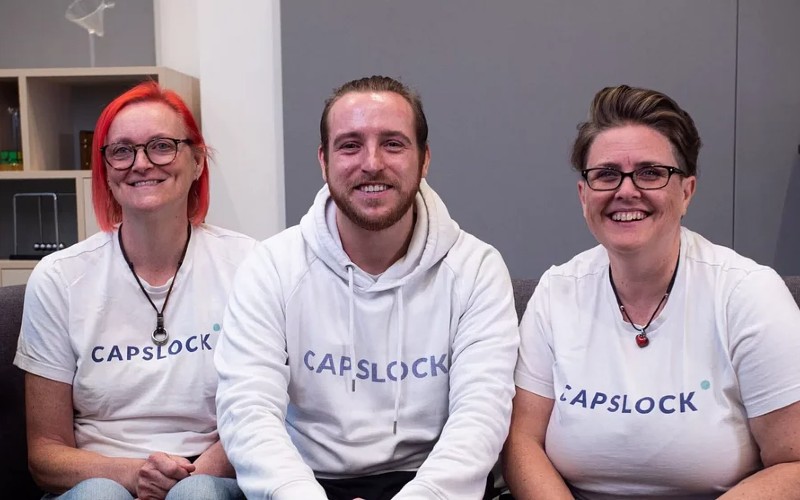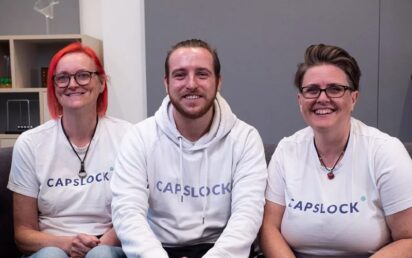CAPSLOCK, an online cybersecurity bootcamp provider, has completed a £1 million pre-seed round.
Through income share agreements, it aims to help people land high-paying jobs in security whilst simultaneously plugging the skills gap. Its pilot cohorts earlier this year re-skilled 86 adults who did not have to pay up-front costs.
Professional dancers, chefs, military veterans, accountants and other career-changers enrolled and have since started lucrative security careers. Dyson, BBC, ITV, BAE, HSBC, Boohoo, and PwC have all hired CAPSLOCK graduates.
They will repay a percentage of their monthly income back to CAPSLOCK over a set period of time – but only once they have landed a high-paying role.
The pre-seed investment was completed in two tranches and investors include Ufi VocTechTrust, GC Angels, the UK government and a group of nine angel investors.
It has launched additional cohorts with the funding, taking the total number of cybersecurity learners enrolled this year to 172 – more than any UK university achieved in 2021.
You must stay humble in business – just look at Manchester City
The company was founded by Dr. Andrea Cullen, Jonathan Slater and Lorna Armitage.
“Increasing diversity within the UK’s cybersecurity workforce is something we’re proud to be leading. It’s at the heart of everything we do, from removing financial barriers with income share agreements, through to encouraging people of all genders, ethnic backgrounds and types of neurodiversity to enrol and re-skill with CAPSLOCK,” said Cullen.
“This funding allows us to scale throughout 2022, grow the CAPSLOCK team and look towards re-skilling thousands of UK adults a year.”
The company says 70% of CAPSLOCK learners land a role in cybersecurity within just three months of graduation, with an average outcomes salary of £32,200, demonstrating the buoyancy within the UK security sector.
Meanwhile 95% of learners enrolled complete the intensive CAPSLOCK bootcamp, which lasts 16 weeks full-time or 26 weeks part-time. In comparison, universities see an average 72% completion rate.


